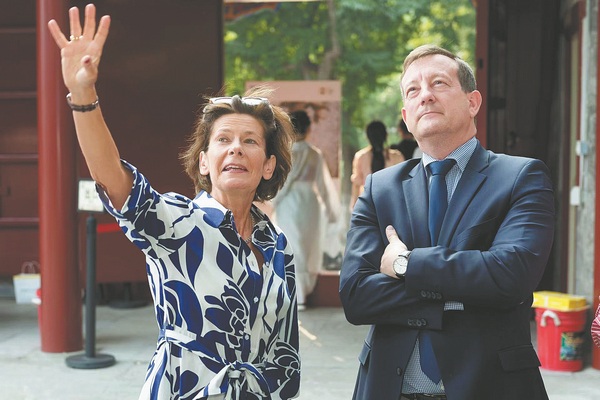

Teacher's view
Before relocating to Beijing with her husband in 2003, Cayol had an impressive career as a teacher of French and philosophy in both Spain and France. Additionally, she had authored several books exploring the realm of art.
Her initial encounter with Beijing was in 2002, and it left an indelible mark on her memory. While strolling alone through the halls of the Palace Museum, her attention was suddenly drawn to a plaque bearing the Chinese characters wu wei (inaction), inscribed by Emperor Kangxi of the Qing Dynasty (1644-1911).
This serendipitous encounter ignited Cayol's fascination with the Chinese philosophy of inaction, as espoused by Laozi, prompting her to embark on a journey of self-learning about Taoism. "Western philosophy is based on the idea that action is the best. You make this decision and you take action. Action is reality," Cayol explains.
"In Taoism, you have to accept that as human beings sometimes you don't have to do anything. I have never seen a philosophy that says no action. This is very distinctive and interesting difference in philosophy dealing with change and action," she says.
In her apartment in southern France, which she reserves exclusively for her writing endeavors, there is a striking emptiness, punctuated only by two essential items: a cross and the timeless philosophical masterpiece, the Tao Te Ching, available in both French and Chinese editions.
Cayol underscores that her quest for learning and embracing Taoism is a lifelong endeavor, paralleled by her dedicated efforts to promote cultural exchange between China and France.
Contact the writer at liyingxue@chinadaily.com.cn